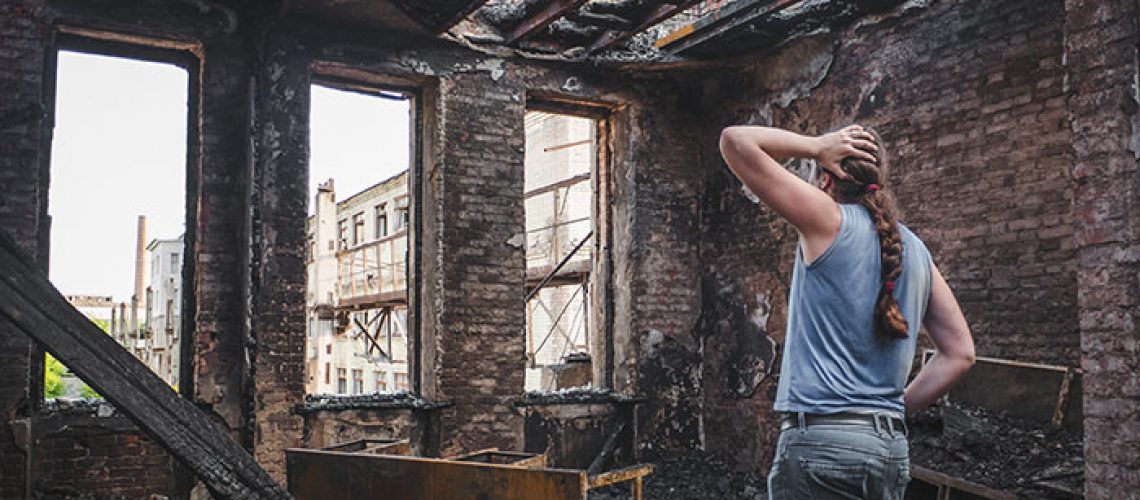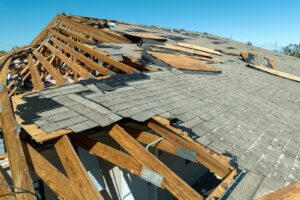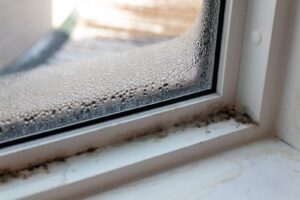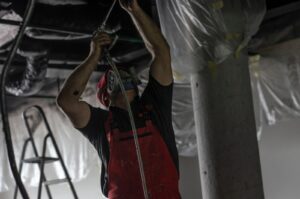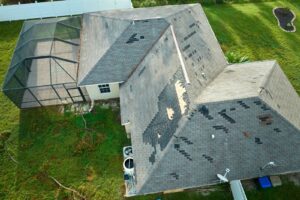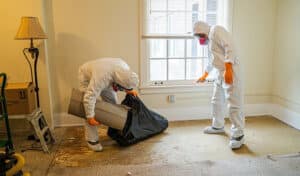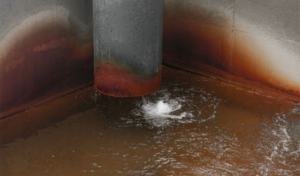If a fire has recently caused severe damage to your home, you’re probably wondering, “Do I have to rebuild my home?” Your homeowner’s insurance should help cover the costs to repair or rebuild your house, but what if you don’t want to rebuild? Most people choose to repair or rebuild their homes after a devastating fire, but you don’t have to. The insurance will generally let you walk away with the insurance payout and start fresh with a new home.
Here’s a look at all the things you’ll want to keep in mind when deciding if you’re going to rebuild your home after a fire.
Insurance Payout: RCV vs. ACV
The first step when deciding whether or not to rebuild your home is to take a look at your homeowner’s insurance. Hopefully, you purchased high enough insurance coverage that will cover the cost of rebuilding it to its original condition. Insurance companies typically offer two types of homeowner’s policies:
- RCV (replacement cost value) is the amount of money it would take to repair or rebuild your home’s original state. Policies with RCV are generally more expensive, but they ensure you’ll have enough money completely replace your home if needed.
- ACV (actual cost value) accounts for depreciation on your home, so it doesn’t provide enough to rebuild it to its original state. These policies are less expensive, but most people with ACV policies find they don’t get a large enough insurance payout to rebuild after a fire.
What if I Don’t Want To Rebuild My Home?
Maybe you are ready to relocate, or the fire was so devastating that you have too many traumatic memories associated with your home. Perhaps your home wasn’t big enough, and you were considering moving anyway. There are plenty of reasons people might choose not to rebuild after a fire.
That’s why insurance companies generally offer the option for homeowners to walk away with the insurance payout rather than using the money to rebuild or restore their fire-damaged home. If you choose this option, be aware that you’ll still need to pay off your existing mortgage. Considering that, it might not be as sweet of a deal as you once thought it was.
Rebuilding and Restoring
That doesn’t mean rebuilding or restoring your home will be easy, either. If you have an “actual cash value” insurance policy, there’s a good chance you will have to cover some of the restoration costs out of pocket. This process can get expensive because repairing fire damage is a highly involved process. You’ll need to account for the following costs:
- Debris removal
- Construction materials
- Labor
- Landscape repair
- Smoke and soot removal
- And more
What To Do if a Fire Destroys Your Home
Home fires can be terrifying and devastating, and many people don’t know what steps to take after the fire has occurred. Once you get yourself and your family to safety and call 911, you can start thinking about your next steps.
Here’s a look at some of the actions that will help get you back to everyday life.
- Contact your insurance company. This is one of the first things you should do after experiencing a house fire. Remember that your insurance company is part of your team, and they’ll be able to help recommend the next steps for you and get you set up for repairing, rebuilding, or moving on.
- Find a safe place to stay. Many insurance companies will pay for temporary living arrangements when your home is unsafe to occupy. Be sure to keep track of your receipts for lodging just in case your insurance company needs them.
- Obtain a copy of the official fire report. The firefighters that responded to your emergency should have created a fire report. Request a copy of the report from your local fire department and keep ahold of it just in case you need it for insurance purposes in the future.
- Document personal belongings and recover what you can. If everything in your home was lost, you’re probably feeling like you’re starting from scratch. You can help get things back to normal faster by making a list of all of your personal belongings. It helps if you have pictures to go along with the list, but that’s not always possible. Include in your list the items you owned, when they were purchased, and how much they cost.
- Don’t default on your mortgage payments. It’s not a bad idea to contact your lender and let them know what’s going on, but you should expect to continue making mortgage payments during the rebuilding or restoring process. Depending on your policy, your insurance company may make these payments for you but check with them before assuming the payments are being taken care of.
Call the Experts at Restoremasters
Did your home suffer damage from a recent fire? Has it made you constantly worry, “do I need to rebuild my home?” You’re not alone. A house fire can be extremely unsettling and leave you feeling unsure about what steps to take next.
That’s why the experts at Restoremasters are here to help. Our team has decades of experience restoring homes that have suffered fire damage. We also address smoke and flood damage, sewer backup, and mold removal. We want you to live in your home and enjoy everyday life confidently without the concerns of smoke residue and fire damage.
So if you decide to rebuild or restore your home after a fire, contact Restoremasters right away. There’s no need to face the uncertainty of damage to your home alone. Give us a call to repair, renew, and restore your home, and we’ll be with you every step of the way.
Restoremasters is located in Sandy, Utah, and we serve the greater Salt Lake and Utah County areas. Contact us today to get started! You can contact us at 801.948.2478 or through the form on our website.

